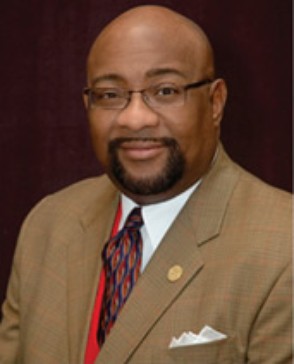Oh, Won’t Somebody Think of the Rapists?
What Robert R. Jennings was really saying in his controversial remarks.

Robert R. Jennings. Photo | Lincoln University
Last week I wrote about street harassment and why women worry, with particular attention to the threat of the unknown and unfamiliar: the strange men that encroach upon a woman’s personal space in public, the terrifying possibilities that wait in dark patches of sidewalk and around the bend of a street corner. But there is something more pervasive that also causes concern: rape culture.
“We have, we had, on this campus last semester three cases of young women who after having done whatever they did with young men,” said Lincoln University president Robert R. Jennings in remarks to an all-women’s convocation in September. “And then it didn’t turn out the way they wanted it to turn out, guess what they did? They went to Public Safety and said, ‘He raped me.'”
If you weren’t sure what rape culture was before, you should be now: Jennings’ attitude embodies it perfectly.
As an authority figure on a campus full of young adults, 59 percent of whom are women, according to the U.S. College News Compass, Jennings set a permissive tone for existing and would-be predators, ones that would only further discourage victims of sexual assault from coming forward.
Apparently, though, the women of The Lincoln University of Pennsylvania campus are not Jennings’ primary concern, as he went on to talk about how allegations of sexual assault and rape can damage the lives and reputations of those accused.
“I don’t care how close they are to finishing the degree, their whole life changes overnight. Because they’re going to get a record. And that record is then going to follow them the rest of their life. They’re going to be expelled from the university. It’s going to be very difficult for them to get into anybody else’s university, because they have to explain at the receiving institution why they were expelled from the institution they were expelled from.”
Oh, won’t somebody think of the rapists?
I’ve taken to this space to talk about rape culture before. And unlike the random abductions that happen in obscurity, much of rape culture exists out in the open. It is not subversive, and neither, largely, are rapists. Nor are their enablers, like Jennings.
In fact, two-thirds of rapes are committed by someone known to the victim, and 73 percent of sexual assaults are perpetrated by a non-stranger, according to the Rape, Abuse & Incest National Network.
Jennings’ comments, though, are not unique. In fact, his remarks (which he has since apologized for) echo a lot of the things young women are taught about how to conduct themselves, both as a measure of safety and as a way to be more appealing to men. Because obviously, that’s what women come to college for, and because apparently men aren’t responsible for the way they choose to conduct themselves.
“Men treat you, treat women, the way women allow us to treat them,” he said, echoing things I’ve heard fathers tell their daughters in a misguided attempt to empower them. “We will use you up if you allow us to use you up.”
Jennings clangs away at the same respectability bell, the one that resounds to let women know that they are more worthy and more desirable if they operate in anticipation of male desires and needs. Men “marry the girl with the long dress on,” because she’s not a slut and the “smart girls,” like Jennings’ own daughter, are the ones who don’t get assaulted.
Follow @MF_Greatest on Twitter.


